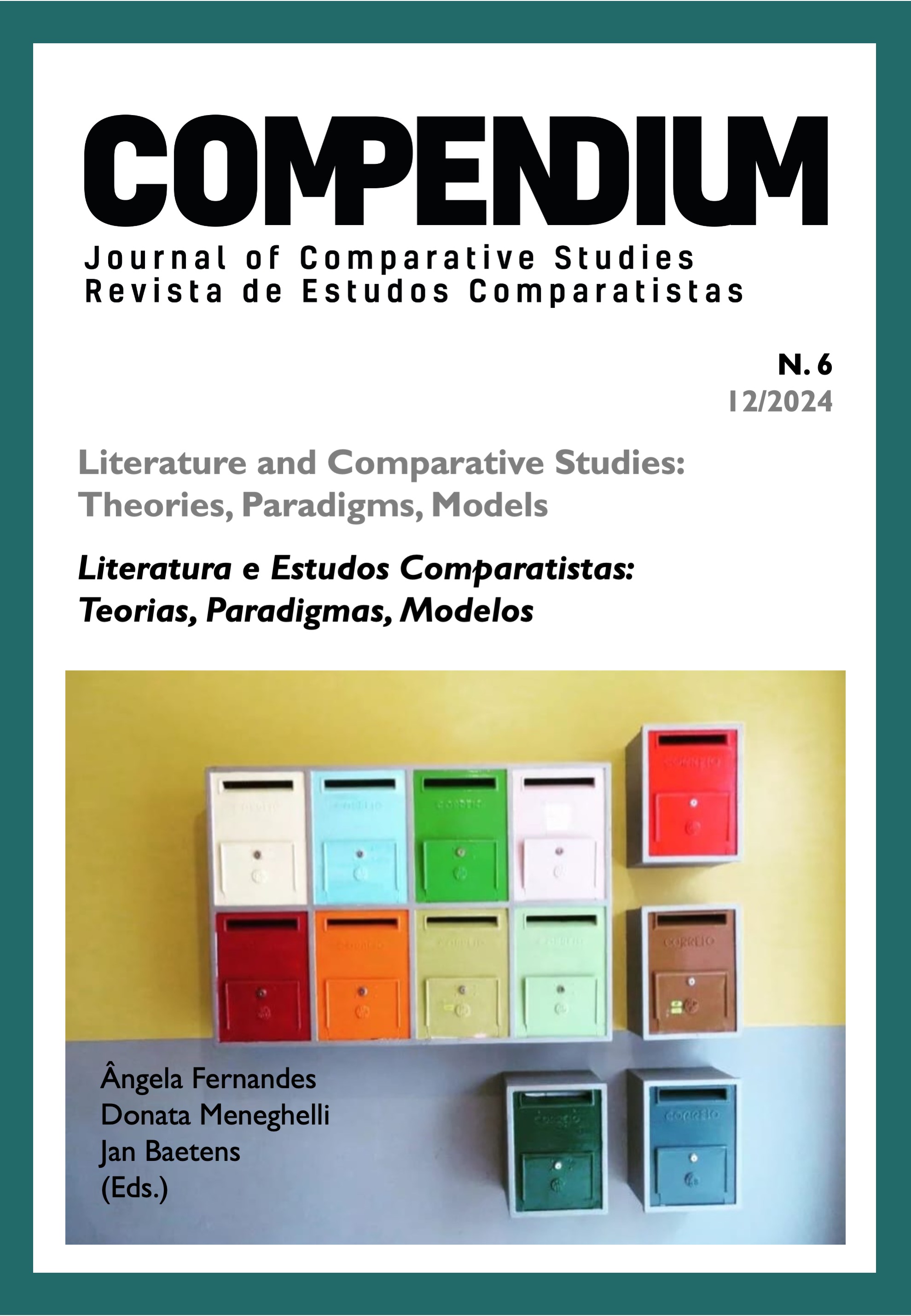Call for Articles: Compendium N. 6
Submission deadline: 1 July 2024
Literature and Comparative Studies: Theories, Paradigms, Models
Deadline for submissions: July 1, 2024
Publication: December 2024
Editors:
Ângela Fernandes (University of Lisbon)
Donata Meneghelli (University of Bologna)
Jan Baetens (KU Leuven)
Compendium: Journal of Comparative Studies is welcoming articles for its sixth issue, dedicated to the reflection on the current position, the shifting practices and the conflicting views about the field of Comparative Studies within the Humanities in the early twenty-first century. Paying special attention to the historical place of Literature as the creative field that first witnessed the development and consolidation of comparative approaches, this issue proposes the discussion of contemporary perspectives on Comparative Literature and Comparative Studies, delving on what may seem both the vulnerabilities and the opportunities of the discipline, as well as its conundrums.
When considering the contemporary panorama of research, teaching and knowledge dissemination developed under the label ‘comparative studies’, one finds such a multiplicity of theories, paradigms, models and objects of study that any common denominator(s) might seem impossible to grasp. In addition, and somehow contradictorily, the broad diversity of this panorama is tainted by the recurrence of some aspects, such as the predominant attention to contemporary works and issues, with scarce historical reflection, and the use of English as the almost only language of reading, study and communication.
Following recent scholarship on these topics (see bibliography below), in this issue, we would like to focus on the changing relations between Literature and Comparative Studies, in terms of theories, paradigms and models, and thus invite the submission of articles dealing with the following lines of discussion:
- the place of literature and literary analysis in Comparative Studies;
- the relation between literature and other arts, as well as other cultural practices;
- the tensions between formal and thematic analysis;
- the renewed interest in materials and media;
- the challenges of digital humanities and the interplay between distant and close reading;
- the input of analytical techniques and insights from social sciences;
- the opportunities and limits of interdisciplinarity in Comparative Studies.
Submitted articles may be written in English, Portuguese, Spanish, or French, and should range between 6,000 and 8,000 words, including notes, references, an abstract of 150 to 250 words, as well as 4 to 6 keywords. Authors must follow the formatting guidelines listed in the Submissions section under Author Guidelines on the journal’s website. Submissions must include a separate document containing a short biographical note of the author, up to 150 words.
Questions and expressions of interest can be sent to the editors at: angela.fernandes@edu.ulisboa.pt.
Online submission: to register and submit your article for peer review, please follow the hyperlink Make a Submission on the Compendium homepage before July 1, 2024.
Working Bibliography:
- Bertoni, Federico (2018). “La teoria alla prova”. Comparatismi, (3), 38–49. https://doi.org/10.14672/20181480
- De Gasperi, Giulia & Pivato, Joseph, eds. (2018). Comparative Literature for the New Century. Montreal: McGill-Queen's University Press.
- Domínguez, César, Haun Saussy, Darío Villanueva (2015). Introducing Comparative Literature. New Trends and Applications. London and New York: Routledge.
- Griffiths, Devin (2017). “The Comparative Method and the History of the Modern Humanities”. History of Humanities, Volume 2, Number 2, 473-505. http://dx.doi.org/10.1086/693325
- Hutchinson, Ben (2018). Comparative Literature: A Very Short Introduction. New York: Oxford University Press.
- Marx, William (2020). Leçon inaugurale de la chair « Litteratures comparées ». Paris, Collège de France. Vivre dans la bibliothèque du monde | Collège de France (college-de-france.fr)

